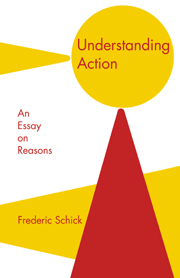5 - Seeing Things Right
Published online by Cambridge University Press: 05 June 2012
Summary
A NEW QUESTION
Pascal's mentor in the Provincial Letters showed him the uses of “directing” the mind. Having a suitably directable understanding can be very convenient, for it allows us to put the rule of double aspect (double effect) to good advantage. A judge's taking a bribe is wrong, if he now sees his taking it so. But if, in his view, the money is payment, he cannot be faulted for taking it. If he will earn his pay, he deserves it.
Another case: the arsonist. Burning down the house was wrong, that is, the arson so-reported was wrong. But suppose that you asked him to do it. If he saw setting that house on fire as doing you a favor, he is in the clear. No one can be blamed for doing people favors.
Pascal found this maddening, but what was it that made him so angry? He may have held that a bribe was a bribe and that arson was arson, no matter how they were seen, that how an arsonist sees his arson makes no moral difference. If that was his line, he was being too hard. Our seeings or understandings are part of our reasons, and our reasons must bear in some way on the status of what they move us to do, on whether those doings are right or wrong. Still, perhaps what he meant was this, that how a person sees what he does is itself subject to censure.
- Type
- Chapter
- Information
- Understanding ActionAn Essay on Reasons, pp. 151 - 164Publisher: Cambridge University PressPrint publication year: 1991



